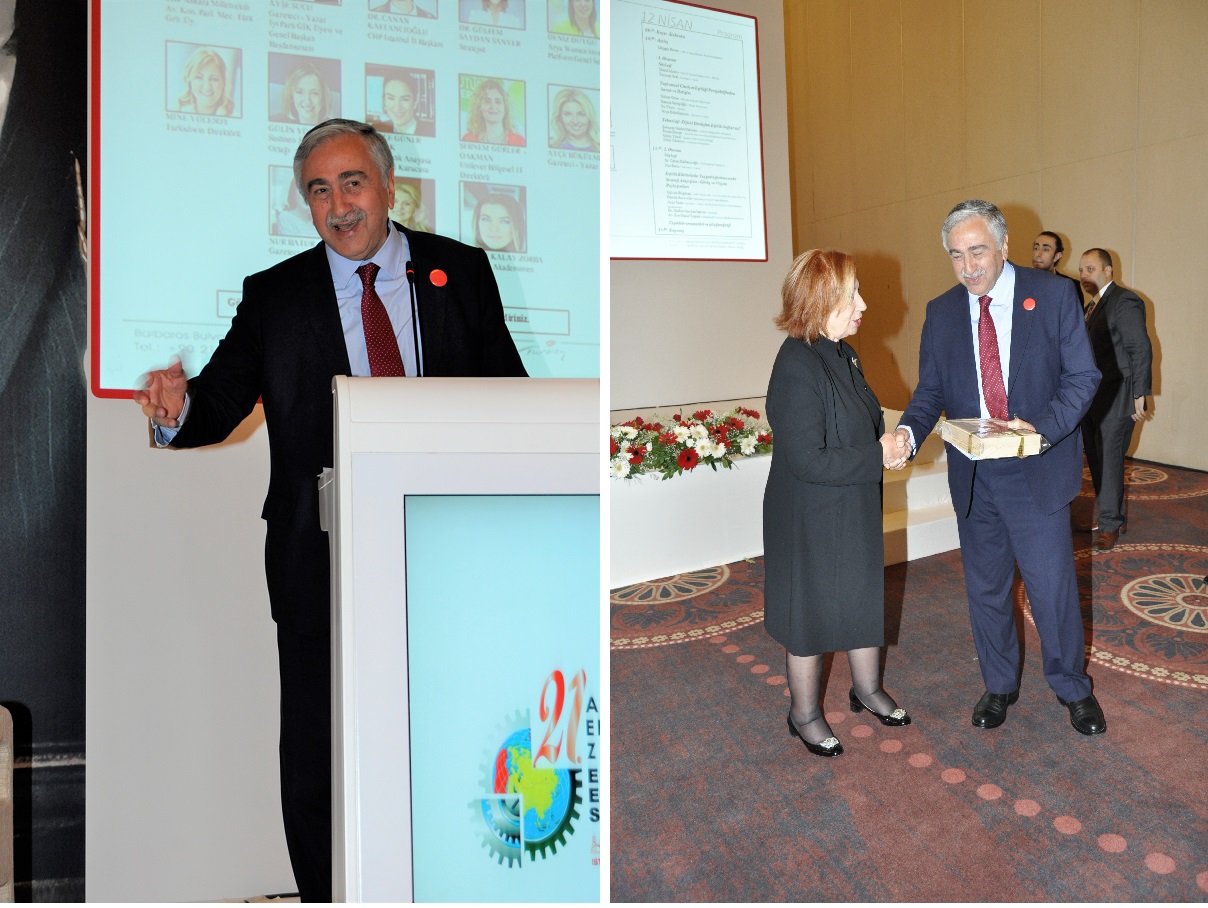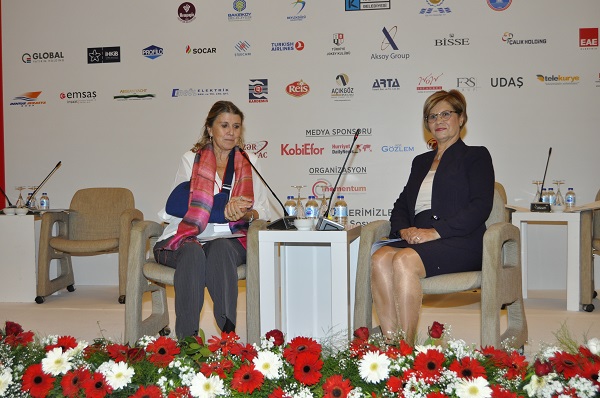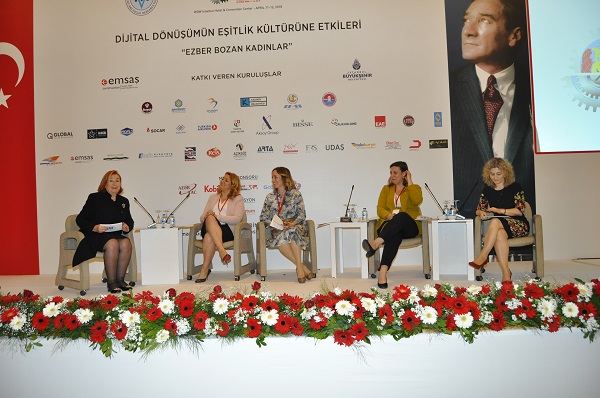THE EFFECT OF DIGITAL TRANSFORMATION ON EQUALITY CULTURE
21st EURASIAN ECONOMIC SUMMIT 201
SUSTAINABLE DEVELOPMENT MEETINGS
THE EFFECT OF DIGITAL TRANSFORMATION ON SOCIAL EQUALITY CULTURE
"GAME CHANGING WOMEN"
Istanbul WOW Hotel & Convention Center
Thursday, April 12th 2018, 10:00 - 13:00
RESULTS - RECOMMENDATIONS
After "The Effect of Digital Transformation on Equality Culture - Game Changing Women" session, an interactive panel with 200 participants and 18 speakers from academia, politics, media, as well as from the private sector in the 21st Eurasian Economic Summit, the Marmara Group Foundation shares the findings and recommendations with the public:
Information communication technologies and digital transformation are seen as a force to advance development all over the world. For this reason, the dissemination of the use of these digital technologies must be made an agenda item in the domestic politics of the countries as well as more strategy-focused efforts to close the digital gap / digital gender gap.
• Information communication technologies and digital transformation are seen as a force to advance development all over the world. For this reason, the dissemination of the use of these digital technologies must be made an agenda item in the domestic politics of the countries as well as more strategy-focused efforts to close the digital gap / digital gender gap.
• Inexpensive and secure internete access all over the country should be constitutionally guaranteed for all citizens, and inclusive policies and projects should be passed on for equality of access. The closure of the digital openness seen among the genders should be seen as an important part of the gender equality struggle and steps should be taken to enable internet technologies to be used as a means of women's more active participation in social and economic life.
• In almost all developing countries, men seem to have a more advantageous position in using internet technology than women. Even the rates of use of men and women in the same country are influenced by many factors such as education / welfare level, foreign language / culture, urban / rural segregation. Internet usage in Turkey is increasing rapidly, but the digital gender gap still remains sharply against us (According to the April 2016 survey of TURKSTAT, computer and internet usage rates were 70.5% for males and 51.9% for females)
• Since not having easy, reliable and qualified access to Internet technologies means to be deprived of the advantage of free circulation of information, this should be regarded as a fundamental right of citizenship, since it means depriving the free movement of knowledge. For this reason, lifting the digital deficit must be addressed not only in the dimension of planning technological investments, but also in social policies.
• Public and private sector organizations working in the fields of technology, communication, and information production should include a gender perspective in their policies, programs and activities (gender sensitivity, focus on gender). However, these studies, which are carried out by the public and private sector, have to be transformed into nationwide and long-term strategic plans.
• Companies in the communications and technology sector should undertake joint work with national and international projects and policies to break the view that technology and internet are regarded as a 'man's field', to develop women-oriented software, and to support women in high-level responsibility and software fields.

.jpg)



